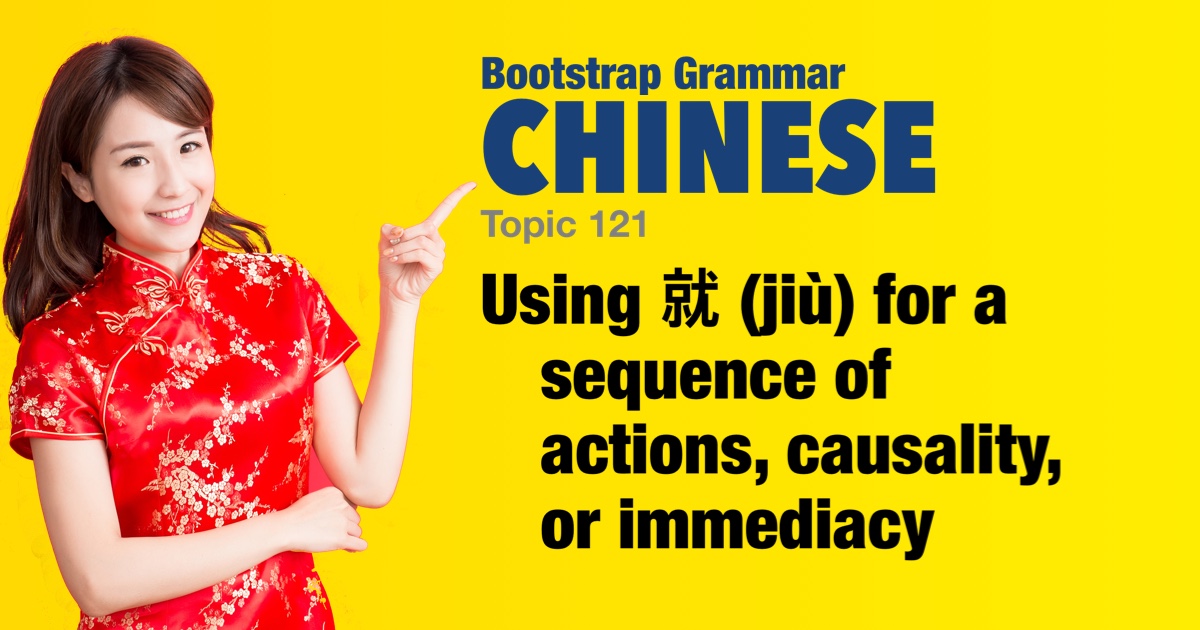Chinese grammar - Using 就 (jiù) for a sequence of actions, causality, or immediacy |
|||
|
|||
We previously saw 就 (jiù) used in Chinese to construct 'if…then…' statements. Additionally, 就 can be used alone to indicate a sequence of actions, causality, or immediacy. In this sense, it is used to indicate that one action or event follows immediately after another. The equivalent in English is 'then', 'right away', 'as soon as' or 'as a result'. |
| Examples: | |
|
他回家就睡觉。
tā huíjiā jiù shuìjiào. He goes to sleep as soon as he gets home. |
|
|
他跑步就出汗。
tā pǎobù jiù chūhàn. He sweats as soon as he runs.
|
|
|
这么说就明白了。
zhème shuō jiù míngbái le. Say it this way then it's clear. |
|
|
他吃完晚饭就去睡觉。
tā chī wán wǎnfàn jiù qù shuìjiào. He went to sleep right after finishing dinner. |
|
|
我们吃完早饭就出发。
wǒmen chī wán zǎofàn jiù chūfā. We left right after breakfast. |
|
|
他看见我就笑了。
tā kànjiàn wǒ jiù xiào le. He smiled as soon as he saw me. |
|
|
你到了就给我打电话。
nǐ dào le jiù gěi wǒ dǎ diànhuà. Call me right after you arrive. |
|
|
他听到消息就哭了。
tā tīngdào xiāoxi jiù kū le. He cried right after hearing the news. |
|
|
你准备好就可以出发。
nǐ zhǔnbèi hǎo jiù kéyǐ chūfā. You can leave whenever you are ready. |
|
|
我们饿了就吃东西。
wǒmen è le jiù chī dōngxī. We eat whenever we are hungry. |
|
|
她打开书就开始读。
tā dǎkāi shū jiù kāishǐ dú. She started reading as soon as she opened the book. |
|
|
我们吃完晚饭就去看电影。
wǒmen chī wán wǎnfàn jiù qù kàn diànyǐng. We (will) go to watch a movie right after dinner.
|
|
|
他学完中文就会去中国。
tā xué wán zhōngwén jiù huì qù zhōngguó. He (will) go to China right after he finishes learning Chinese.
|
|
|
我们吃完饭就走。
wǒmen chī wán fàn jiù zǒu. We (will) leave as soon as we finish eating.
|
|
|
我们到了火车站就买票。
wǒmen dào le huǒchēzhàn jiù mǎi piào. We (will) buy the tickets as soon as we arrive at the train station.
|
|
 |
|



 The future tense is implied
The future tense is implied